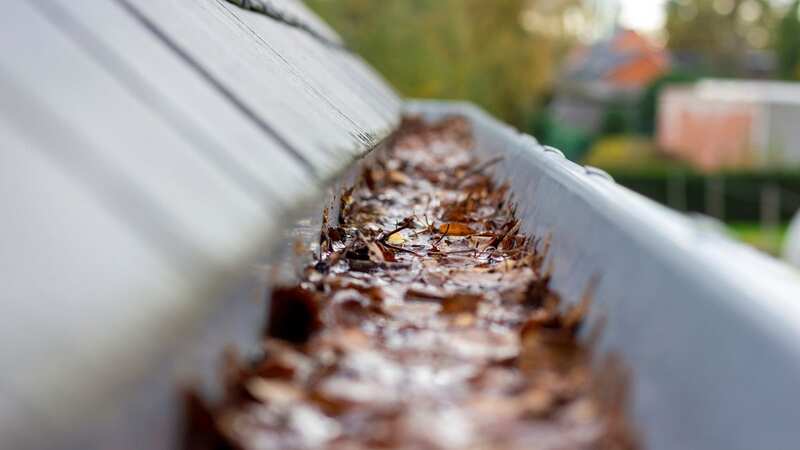Often-forgotten job in your home that could cost you £720 to repair if neglected

With many of us stressing about energy bills this winter, it's good to know that there are savvy ways to keep our homes warm without breaking the bank.
Wintry weather can also cause annoying and costly problems in our houses. Boiler emergencies, burst pipes and the like are absolute nightmares in the colder months, but one expert insists doing some DIY jobs before a cold snap can help you to avert disaster.
One household error could leave you having to fork out between more than £700, and Barratt Group construction director Rhoddy MacKinnon warned we should all keep on top of it. The cost of replacing guttering around your home is estimated between £480 and £720, depending on the materials, size and shape.
You should remove debris, leaves or moss from your gutters to make sure rainwater can flow through, using a hosepipe or jet wash to make sure you get it all. In the meantime, look out for unexpected drips or flows as those would suggest a leak.
It is recommended that you get a verified company to do that, and door-to-door traders should be avoided as they present scam risks.
 Shop prices 'are yet to peak and will remain high' as inflation hits new heights
Shop prices 'are yet to peak and will remain high' as inflation hits new heights
Explaining there are many more jobs that can help you avoid sudden bills or household disasters, Rhoddy said: “With the seasons changing, it's good to get your home safe and energy efficient by doing some essential jobs before the cold, wet weather kicks-in. Tackling these tasks early on in the seasonal switch, such as inspecting insulation and boilers, means that you could avoid expensive, unexpected bills in the run-up to Christmas.
“With energy prices rocketing, making your home warm and cosy will cut the cost of your energy bills. It’s not only a savvy move financially, but is also environmentally responsible. By taking steps to seal any draughts and optimise our heating systems, you’ll be contributing to a greener, more sustainable future."
Testing your smoke and carbon monoxide detectors is also recommended in the run-up to winter. You should ideally test the devices once a month throughout the year, and fireplaces or log burners should always be in working order.
Insulation in your attic should be probed for damage to make sure it does its job in the colder months. Any tears, draughty areas or musty smells may mean your insulation needs to be repaired or replaced.
Watermarks and dark patches in your loft are tell-tale signs of general disrepair, rot or sagging. You should also check the tiles and condition of your roof.
The average cost for blanket insulation ranges from £125 to £420, whereas blown fibre insulation costs range from £1,375 to £4,125, with both depending on the size of your home.
If your windows and doors are letting draughts in, it could mean that your seals are damaged. Running your hand through windows, doors and skirting boards is a good way to check, while rattles and high winds should also get the alarm bells ringing. Caulks, draught excluders, and heavy curtains can all help get rid of unwanted breezes.
Plumbers can be hard to come by over winter, so it is best to check your boiler for any issues before peak demand hits. If your pressure gauge is at lower than one bar, it is likely that your boiler is not working efficiently.
The average cost of a boiler repair is £300, so making checks could save you a lot of money in the long run. The government's Boiler Upgrade Scheme could help you if you're looking to replace an old boiler.
Another important task is bleeding your radiators. To do just that, turn your boiler off, put a radiator key into the valve, turn it anti-clockwise and close it once you see water. A hissing noise should be heard when you do it.
 8 money changes coming in February including Universal Credit and passport fees
8 money changes coming in February including Universal Credit and passport fees
You can put a container underneath the radiator to prevent the water from spilling onto your floor. It is best to bleed your radiators at least once a year to prevent cold spots.
It is easy to forget exactly what your home insurance covers, but winter can be a good time to review your policy and make changes if you have made any large purchases such as electronics or bikes. Leaks and storm damage are also vital parts of a good policy.
Lastly, Rhoddy recommends that you install a smart meter to let you know how much energy you're using in the moment. It helps you to manage your usage, especially in the winter when some of us can be wary about cranking the heating up too much.
Read more similar news:
Comments:
comments powered by Disqus

































